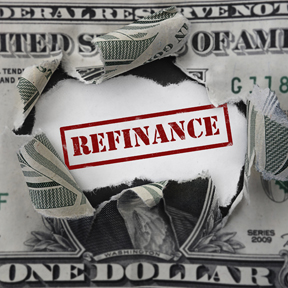
November 2019
Housing costs are one of the largest components of most household budgets. With interest rates changing so frequently, you should periodically determine whether refinancing at current interest rates would save you money.
To determine whether you should consider refinancing, you need to compare the costs of obtaining a new mortgage with the savings you could enjoy with a reduced interest rate. You may also want to consider refinancing to a different type of mortgage, such as switching from a 5-year balloon to a 15-year fixed rate mortgage.
For example, if refinancing your mortgage will save you $200 a month but cost $2,000 in fees, it would take you 10 months to recuperate those costs. That's great for certain situations, like if still have a few years left on your loan, but may not make sense in others. A mortgage lender can help you figure out what is best for you.
Other considerations
When reviewing the feasibility of refinancing, you may also wish to consider refinancing a larger or smaller amount than the current balance of your mortgage. If you have excess funds available and believe you will have a hard time earning a return greater than the mortgage rate, you may want to pay down your mortgage and get a new mortgage that is smaller. If you have other liquidity needs, you may want to refinance a larger amount to free up some of the equity in your home.
Under the new tax law, mortgage interest is tax deductible up to a $750,000 balance if you itemize your deductions on your tax return. Consult your tax advisor to see how this may apply to your situation.
Final thoughts
No interest rate environment lasts forever. Unfortunately, there is no crystal ball that will tell you when rates have reached their lowest level. Acting now to evaluate whether refinancing now makes economic sense and evaluating the type of mortgage you want can help you be in control of one of your largest household expenses.
